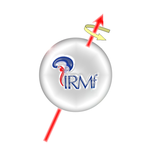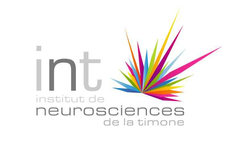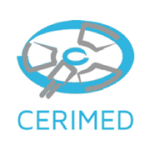- Workshop with Jean-Baptiste Poline “Harmonizing, standardizing, and sharing data: challenges and practices”
When?: December 13 2024, 9:00 AM – 1:00 PM
Where?: Saint Charles campus, building 9, room Phy51
Why?: Jean-Baptiste has been developing biostatistical methods for handling and analysing neuroscience data for nearly 30 years. He is a strong advocate and pioneer in data sharing, having contributed to the development of several tools in this field for fMRI and more (e.g., BIDS format or more recently neurobagel and nipoppy*). He will share his insights and experience on both the conceptual and practical aspects of managing neuroscience databases at various scales.
How?: We plan to structure the workshop in three parts:- An interactive introduction to present the interests, challenges, constraints, barriers, and opportunities of data sharing.
- A demonstration using a real dataset.
- A more hands-on session for those who want to stay and gain practical experience using their own data set on their own computer.
Who should attend?: Anyone interested in learning more or discussing the structuring and use of databases, as well as gaining practical experience with various tools.
To help us organize better, please register using the following link if you plan to attend (and with what level of certainty) : https://columbo.univ-amu.fr/index.php/687427?lang=fr
*Notes:
- nipoppy is an extension of BIDS for organizing your data and processing locally,
- neurobagel allows you to discover or share data across labs/institutions and create cohorts (already adopted by OpenNeuro). In the future, it will enable distributed analyses, which is important due to GDPR regulations.
- Auditory stimulation & active noise cancelling in MRI / fMRI
Here is the PDF version of Bruno Nazarian’s talk at the CRMBM seminar on 7 February 2022.
The main theme of this slideshow is Active Noise Cancelling (ANC), but presents more largely the different techniques, technologies and tools for auditory stimulation in MRI.
- Electro-Myography in MRI: Technical and pedagogical presentation
Acquiring (and use) of electro-myographic (EMG) signals in functional MRI poses many technical and methodological problems
The MRI Center has developed a set of hardware and software tools to address this issue
The presentation introduces the physical aspects related to the sources of induction noise and then the acquisition and processing tools that allow to overcome them. Finally, some results are illustrated.
This work was presented at the Monthly NeuroImaging Meeting on December 21, 2021
Download the slideshow as a PDF file
- “Technical Lectures”: MRI for Neurosciences
The INT and the Centre IRM-INT are organising two exceptional sessions of “Technical Lectures” on MRI :
Friday 11th and Friday 18th December (13h30 – 15h30).The objective of these sessions is to present in a simple and didactic way the numerous possibilities offered by MRI for research in Neuroscience. Exceptionally, the slides are presented in English and the speech in French.
These pedagogical seminars are intended for everyone, and in particular for students and researchers who are not specialists in MRI. They are an opportunity to ask questions and gain a better understanding of the advanced MRI techniques used in neuroscience, many of which are developed within INT.– Friday 11/12/2020 (13h30 – 15h30): Part 1: Magnetic Resonant (MR) Imaging of cerebral structure (see pdf 35 Mo)
– Friday 18/12/2020 (13:30 – 15:30): Part 2: Functional MR Imaging: brain activity and functional connectivity (see pdf 26 Mo)
The speakers are engineers and researchers from INT and the Centre IRM-INT : Jean-Luc Anton, Guillaume Auzias, Pascal Belin, Thierry Chaminade, Olivier Coulon, Julien Lefèvre, Kep Kee Loh, David Meunier, Bruno Nazarian, Julien Sein, Sylvain Takerkart.
For those of you who are not part of INT, please contact <intanimascience@gmail.com> and/or <Jean-Luc.Anton@univ-amu.fr> in order to receive the connection link to the videoconference (identical link for both sessions).


